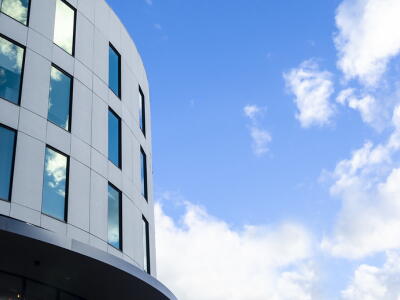ANU researchers awarded $19.7 million in ARC Discovery Projects funding
Posted on
Research into the history of grandparenting in Australia, speed-of-light earthquake and tsunami detection and the search for extrasolar life are among projects at The Australian National University (ANU) to have received federal funding.
Researchers from ANU received a total funding of $19.7 million across 33 projects in the latest round of the Australian Research Council (ARC) Discovery Projects scheme.
ANU Deputy Vice-Chancellor (Research and Innovation) Professor Lachlan Blackhall congratulated the funding winners.
“From understanding bird migration and plant respiration to revolutionising real-time robotic processing and exploring the transition to environmentally friendly technologies like electric vehicles, these projects highlight the breadth and impact of research at ANU,” he says.
“We are proud of the dedication of our academics and the far-reaching benefits this important work brings to science, society and the environment.”
ARC Acting Chief Executive Officer, Dr Richard Johnson, said the ARC Discovery Projects scheme supports excellent basic and applied research to expand Australia’s knowledge base and research capability.
“Discovery grants support individual researchers and research teams in research projects that provide economic, commercial, environmental, social and/or cultural benefits to the Australian community,” he says.
ANU projects to receive Discovery Project funding:
- Professor Nicholas Barnes – Vicinal learning for model calibration and distribution modelling, $450,000.
- Associate Professor Stuart Bedford – Transformed landscapes: 3000 years of adaptation and resilience in Vanuatu, $461,729.
- Professor Prashant Bordia – Demystifying employee disclosure of retirement plans at work, $247,596.
- Dr Kai Xun Chan – Dissecting sensory chloroplasts in specialised cells for climate resilience, $677,659.
- Professor Matthew Colless – Testing the cosmological principle with galaxy motions, $615,194.
- Professor Ben Corry – More than the background: The role of lipids in ion channel function, $1,025,000.
- Dr Charlie Crimston – The moral circle: Understanding the forces that determine moral inclusion, $356,158
- Professor Mahananda Dasgupta – Dissipative pathways to nuclear fusion, $836,572.
- Professor Rhodri Davies – Volcanoes on ice: Mantle influence on Antarctic ice sheet evolution, $689,942.
- Professor Eduardo Eyras – Defining and harnessing the code of messenger RNA modifications, $655,000.
- Associate Professor Damien Farine – Pollinator pathways: GPS insights into honeyeater migration and habitat use, $730,968.
- Professor Christoph Federrath – Radiation-driven turbulence and star formation, $426,684.
- Professor Cressida Fforde – Police collecting of ancestral remains and cultural property, $838,583.
- Professor Giles Hirst – Building worker and technology partnerships that maximise human-AI creativity, $492,573.
- Professor Michael Ireland – Mid-infrared spatial filtering to enable the search for extrasolar life, $579,372.
- Professor Fedor Iskhakov – Innovation in durable goods: expansion of electric cars in Australia, $608,491.
- Dr Mat Langford – Fully nonlinear geometric flows, $550,000.
- Associate Professor Amanda Laugesen – Uncovering hidden histories of women and colloquial language in Australia, $201,638.
- Professor Robert Mahony – Seeing through space and time: Spatio-temporal event processing for robots, $672,905.
- Dr Joanna Melonek – Unleashing the potential of restorer-of-fertility proteins for hybrid crops, $828,790.
- Dr Adele Morrison – Improving projections of the risk of ocean-driven Antarctic ice melt, $540,000.
- Professor Uri Onn – Geometry of character varieties, $510,011.
- Professor John Rathjen – Investigating the plant growth/defence trade-off, $666,818.
- Associate Professor Francesco Ricatti – Grandparenting in Australia: a history (1945-2025), $448,919.
- Professor Celia Roberts – Experimenting with estrogen: Towards inclusive science, medicine and policy, $478,772.
- Dr Andrew Scafaro – The chemical diet of plants and its ramifications on carbon loss in leaves, $729,225.
- Professor Iman Shames – Control at what cost? One-shot real-time dual inverse optimal control, $339,908.
- Professor Michael Sherburn – Next generation synthesis, $543,084.
- Associate Professor Bram Slagmolen – Speed-of-light earthquake and tsunami detection, $671,006.
- Professor Andrew Stuchbery – Nuclear moments as a unique probe of the nuclear quantum many-body problem, $774,903.
- Associate Professor Raymond Tobler – Mapping the bio-cultural impact of Papuan migrations into Wallacea, $998,754.
- Professor Stuart Wyithe – Understanding reionisation with the Murchison Widefield Array, $528,908.
- Associate Professor Po-Lam Yung – Harmonic analysis for elliptic partial differential equations, $569,636.
More details of each project available at the ARC website.
You may also like
Liquid Instruments secures $28.5m new funding
Canberra-born technology company Liquid Instruments has received $28.5 million in funding to expand its product line and introduce novel services that connect lab measurements directly to the cloud.
Major ANU funding win to boost health for all Australians
A tobacco-free future and stopping cancers caused by infections are two of the exciting projects at The Australian National University (ANU) to receive major funding from the Australian government.
$8m ARC funding in research infrastructure for ANU
The Australian National University (ANU) has received more than $8 million in Australian Research Council (ARC) Linkage Infrastructure, Equipment and Facilities (LIEF) grants.


